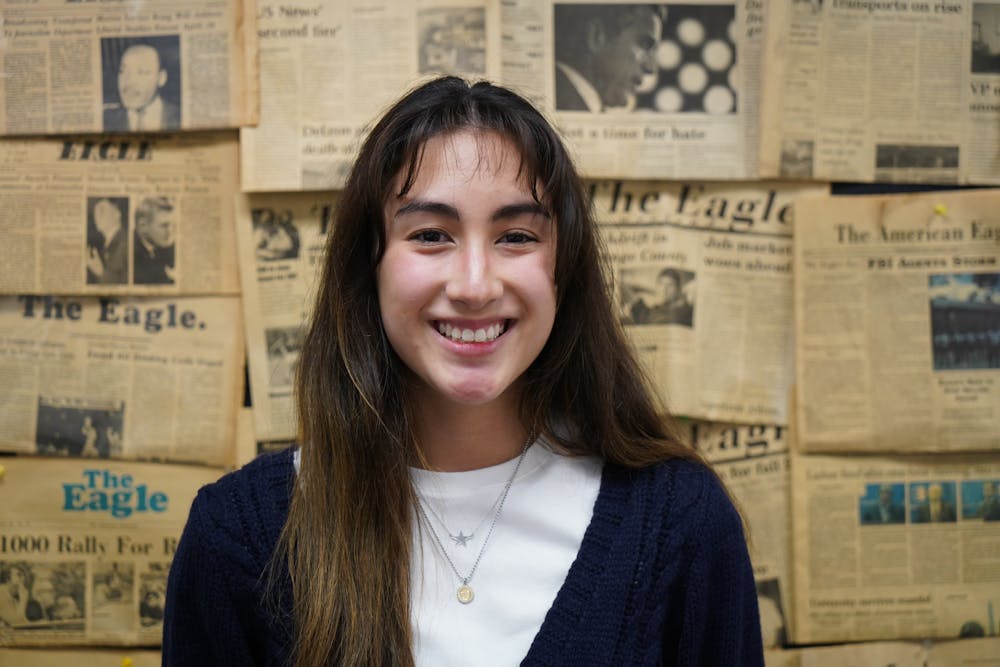The following piece is an opinion and does not reflect the views of The Eagle and its staff. All opinions are edited for grammar, style and argument structure and fact-checked, but the opinions are the writer’s own.
The American University Experience courses are somewhat of a controversial topic in the campus community. Ranges in classroom environments, topic discussion and overall indulgence have made AUx a notorious rite of passage for first-year students.
When introduced to the AU Core curriculum in 2018, the AUx I and II courses aimed to help first-year students engage with University resources while navigating their academic and social transition to AU. The courses were also meant to encourage self-reflection and dialogues surrounding anti-oppressive and anti-racist principles. Since most sections of the course are taught somewhat differently, students have had varying experiences with the program. Depending on who you ask, AUx’s merit goal may have done more harm than good, due to its shortcomings in overall presentation.
Beginning this upcoming semester, AUx, specifically AUx II, is undergoing a major overhaul. First-year students will no longer take the course in small, discussion-based seminars. Instead, the AUx II will become large group lectures of up to 75 students called “AU Encounters” instead of AUx II. These lectures will only meet four times a semester and will discuss the works of James Baldwin. Additionally, the University is dissolving the First-Year Advising program, which is used to help freshmen navigate their academic paths. These changes raise significant concerns about the future of AUx and its ability to serve students effectively. The main goal of AUx is to present information sincerely, with small classrooms and an informal teaching style. The First-Year Advising program sought to support students’ transition into college by assigning them mentors and professionals who could help students realize their true interests.
One of the most alarming aspects of the AUx revamp is the impersonal nature of the new format. In the past, AUx classes were small and round-table based, mine being 17 people, which allowed for more intimate and meaningful discussions. In these small environments, students could critically engage with their peers and the anti-racist curriculum. By increasing class sizes to 75 students, the program becomes less about personal growth and more about passive learning. How can a first-year student, especially one struggling with the transition to college life, find personal meaning in a class where they are just one face in a sea of many? This shift seems to contradict the University’s stated commitment to inclusion and student engagement. Many students enter college unsure of their academic paths and majors. The first year of college is often a time of exploration and uncertainty, so having a dedicated advisor to guide students through that process is crucial. Without first-year advising, students who are undecided or in transition may feel lost, further isolating them and holding them back in an already overwhelming environment.
The University is likely aware of the past criticism of the AUx program, which often centered on its inconsistent delivery and the lack of meaningful engagement. Yet, rather than addressing these issues by improving the quality of instruction and fostering more intimate discussions, the University has opted for a model that could exacerbate the problems. A large lecture format does not provide the space for students to engage in meaningful dialogue about complex issues like racism and oppression. If anything, it reduces the opportunity for personal growth and reflection, which were core tenets of the original AUx curriculum.
Even though the curriculum will now focus on the works of James Baldwin, one has to wonder what this will truly accomplish in such a large, impersonal setting. Are there different strategies or programs American University could bring to the table instead? As a predominantly white institution, the University needs to consider other strategies than two-dimensional lecture classes for real-life issues. Baldwin's writings demand critical thinking and discussion. His works explore deep themes of identity, race and the American experience. A lecture format, especially one that only meets four times a semester, hardly seems adequate enough to achieve this.
Changing AUx II to AU Encounters raises significant concerns about its future effectiveness. By increasing class sizes, reducing meeting times and dissolving essential first-year support services, the University risks creating a less meaningful experience for incoming students. While the focus on Baldwin's work is commendable, the format in which it will be delivered is likely to fall short of fostering the deep personal engagement that the program originally aimed for. Rather than promoting inclusion and involvement, the new model may, in fact, defeat these very principles.
Mari Santos is a junior in the School of Public Affairs and a columnist for The Eagle.
This piece was edited by Alana Parker, Rebeca Samano Arellano and Abigail Turner. Copy editing done by Luna Jinks, Emma Brown, Sabine Kanter-Huchting, Nicole Kariuki and Charlie Mennuti.





